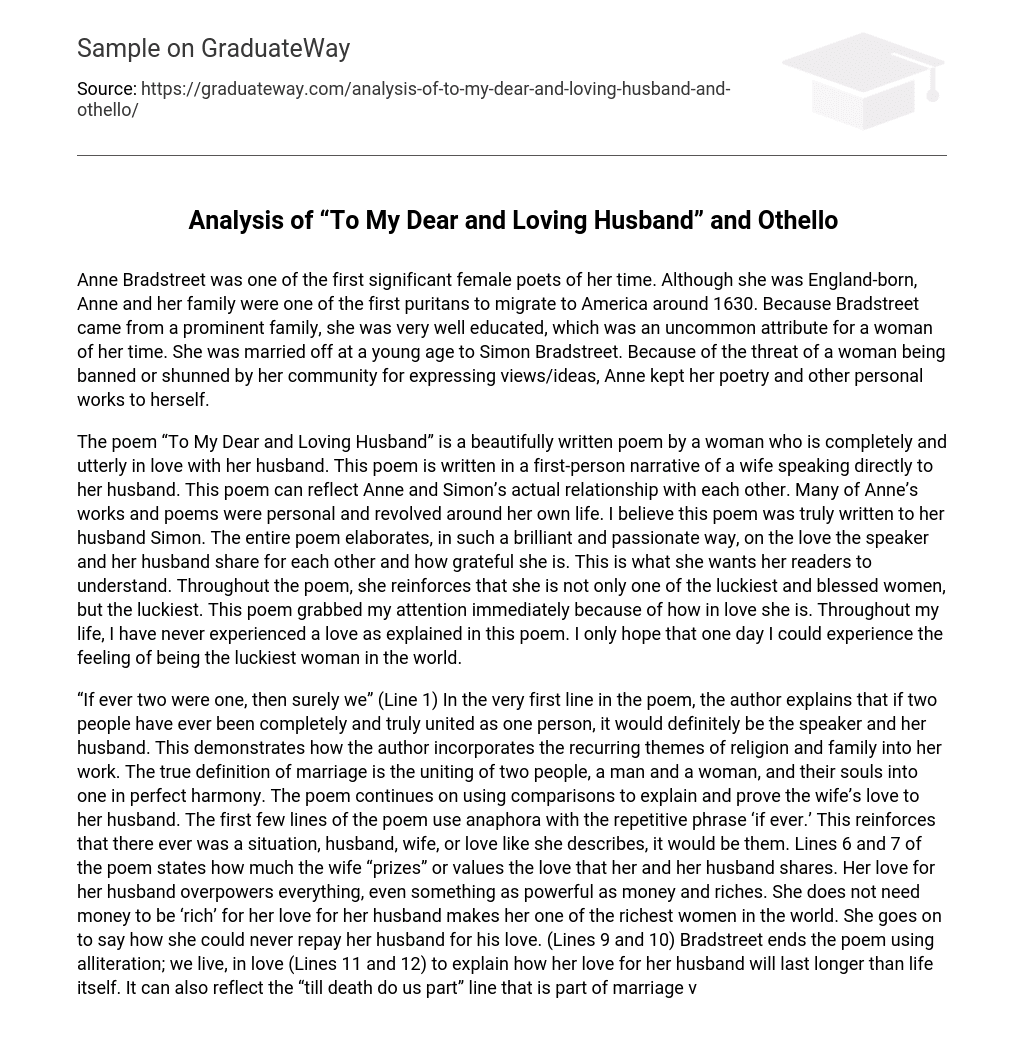Anne Bradstreet, an England-born poet, was a pioneering female poet of her time. In around 1630, she and her family were among the first puritans to immigrate to America. Despite coming from a prominent family, Anne possessed a rare quality for a woman in her era – a good education. She married Simon Bradstreet at a young age but chose not to share her poetry and personal writings due to fear of banishment or isolation from her community.
The poem “To My Dear and Loving Husband” is a heartfelt expression of a wife’s deep affection for her husband. It is written in first-person, directly addressing the husband, and draws inspiration from Anne’s personal life. This poem serves as a declaration of love to her husband, Simon. Throughout the entire poem, the speaker beautifully portrays their intense love and gratitude. The speaker wants the readers to understand the depth of their love and how incredibly fortunate she feels. Personally, I was captivated by this poem’s profound adoration. I have never encountered such a love before and can only hope to one day experience being the most fortunate woman in the world.
The author starts by emphasizing that the speaker and her husband have achieved a true and complete unity. This highlights the recurring themes of religion and family in her work. Marriage is defined as the merging of two individuals, a man and a woman, and their souls into perfect harmony. The poem employs comparisons to demonstrate the wife’s love for her husband. The repeated phrase ‘if ever’ reinforces that their situation is unique through anaphora in the initial lines. Lines six and seven emphasize how much she values and cherishes their love, outweighing even wealth and riches. Money isn’t necessary because her husband’s love makes her one of the wealthiest women in the world. She cannot repay his love in lines nine and ten. Finally, alliteration – “we live, in love” – suggests that their love will endure beyond death, echoing the marriage vow “till death do us part.”
Both Othello and “To My Dear and Loving Husband” both explore the theme of love. However, unlike Othello, Bradstreet’s poem does not contain any element of hatred. Both works highlight that true love is more important and more powerful than life itself. In his attempt to convince Brabantio of his genuine love for Desdemona, Othello risks his life without hesitation, stating, “If you do find me foul in her report…Not only take away, but let your sentence, Even fall upon my life.” (Lines 110-120, pg 971) Love can sometimes be difficult and lead to complications. Bradstreet acknowledges the peril she is causing through her intense love for Othello, stating, “My downright violence and storm of fortunes May trumpet to the world; my heart’s subdu’d.” (Lines 248 &249, pg 972) She recognizes the danger at hand but believes that it is still worth taking the risk. By openly expressing their love for each other, they are knowingly putting their lives on the line. However, this sacrifice is insignificant to them because love conquers all.





